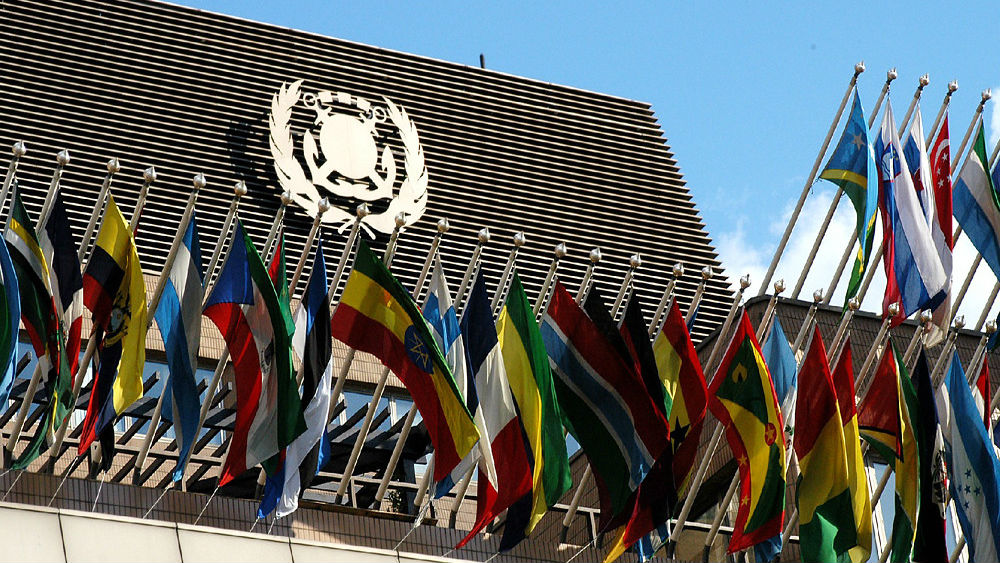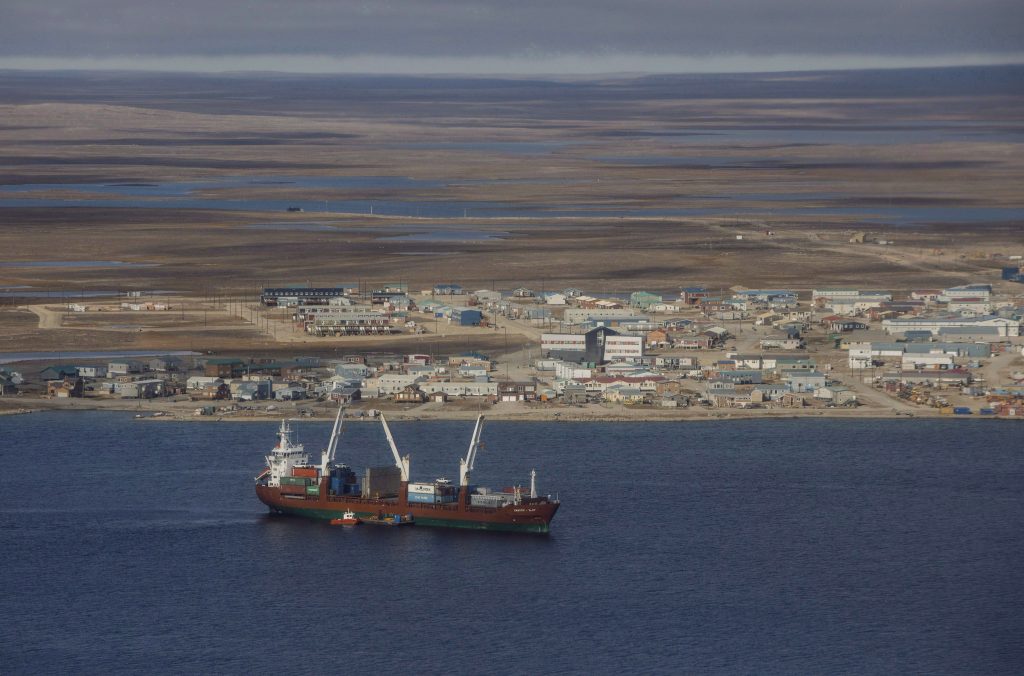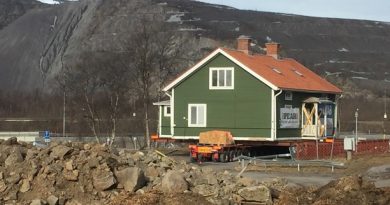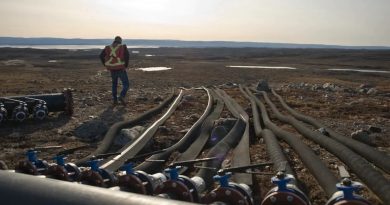Int’l Inuit org disappointed over “weak” heavy fuel oil ban approved by IMO

The Inuit Circumpolar Council (ICC), an organization that represents the approximately 180,000 Inuit in Alaska, northern Canada, Greenland, and Chukotka, Russia, says it’s disappointed over the heavy fuel oil ban approved by the International Maritime Organization (IMO), last week.
“The current Heavy Fuel Oil (HFO) regulation as passed will not effectively protect the Arctic from HFO for over a decade, yet it is labelled a ban,” said Lisa Koperqualuk, the vice president of ICC Canada.
“The regulation as written sets up an inconsistent approach to environmental protection between territorial and international waters and increases the possibility of transboundary pollution,” Koperqualuk said in a news release on Tuesday.
“ICC is disappointed that there could not be a full discussion of the draft HFO ban text and its limitations through the discussions at MEPC 75.”
Pollution and spill concerns
Heavy fuel oil (HFO) is the term used to describe the viscous, low-cost fuels still mainly used in international shipping, something that would make clean up after a potential spill extremely complex in the Arctic. Transport Canada describes the fuel as slower to evaporate than other fuels, which makes it more prone to getting trapped in ice, making recovery a challenge, especially in the Canadian Arctic, a region with very little infrastructure and response capabilities.
HFO also produces black carbon, fine matter produced by incomplete combustion of carbon-based fuels, which when deposited on ice and snow, absorbs heat instead of reflecting heat, contributing to global warming.
An agreement on the draft text of a ban on heavy fuel oil in the Arctic was reached in February at the IMO’s sub-committee on Pollution Prevention and Response (PPR) meeting. The agreement set out a ban on heavy fuel oil from July 1, 2024, but with certain exemptions allowed, including waivers for Arctic coastal state flagged ships until July 1, 2029. Other exemptions in the draft text include ships involved in search and rescue operations, or ships involved in oil spill preparedness and response.
‘Greater exposure to the risks’
Environmental and Indigenous organizations have been raising the alarm since the PPR meeting, saying the 10-year period until the full ban comes into effect puts the fragile Arctic environment at risk.
But at the IMO’s Marine Environment Protection Committee meeting last week, the draft ban was approved without changes to the timeline.
“The ban that the IMO has approved [Nov 20] will mean that a full three-quarters of the ships using HFO today will be eligible for an exemption to the ban, because their fuel tanks are ‘protected’, or because they can apply to an Arctic coastal state for a waiver from the ban”, said Sian Prior, lead advisor to the Clean Arctic Alliance, a coalition of 18 not-for-profit organizations that are campaigning for a global HFO ban.
“As a result, the use of HFO in the Arctic is likely to continue to grow until the ban takes full effect in 2029 – so not only does the ban not sufficiently protect the Arctic, it’s actually contributing to a greater exposure to the risks associated with the use of heavy fuel oil,” Prior said in a news release on Friday.

ICC says the climate impacts accrued over the next decade until the ban come into effect are also a concern for Indigenous communities.
“Protections that take effect in ten years do nothing to address the immediate impacts and imminent threat of a HFO spill and climate change,” ICC said in their statement. “ICC is of the opinion that the most effective near-term solution for climate change is to greatly reduce the emission of black carbon, produced from HFO, in the region.
“An appropriate HFO ban would have recognized this as well as implemented further protections against an oil spill and the devastating effects on the Arctic marine environment.”
Arctic resupply
In Canada, HFO remains the main fuel used in the ships that resupply Canada’s Arctic fly-in communities, as well as in bulk carriers.
The remoteness of villages in Canada’s North means goods are already several times the cost of prices in southern Canada. An impact assessment done by Canada on a potential ban found it could increase costs in the North by $248-$679 per household per year.
Indigenous organizations in favour of the ban say tax credits, subsidies, or refund schemes could be used to prevent the costs being downloaded onto northern communities when the ban comes into effect.
On Tuesday, the ICC said it will keep working with the IMO, the Arctic Council and other partners to find ways to better protect the Arctic.
“Arctic partners must now increase emergency protection measures in communities to address the real possibility of a HFO spill and address black carbon emissions as an important climate force in the Arctic,” ICC said. “We hope to move forward alongside industry, regulators, and others in this manner.”
Write to Eilís Quinn at eilis.quinn(at)cbc.ca
Related stories from around the North:
Canada: International ban on heavy fuel in Arctic shipping full of gaps: environmentalists, The Canadian Press
Finland: Finland investigates oil leak risks from Baltic Sea shipwrecks, Yle News
Iceland: Iceland to restrict heavy fuel oil use in territorial waters, Eye on the Arctic
Norway: LNG-reloading operations end in Norway’s Arctic waters, The Independent Barents Observer
Russia: Growth continues on Northern Sea Route despite year of crisis, The Independent Barents Observer
United States: Carnival Corporation ships switch to cleaner fuel on Arctic cruises, Radio Canada International



